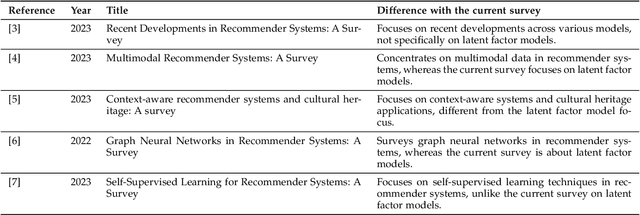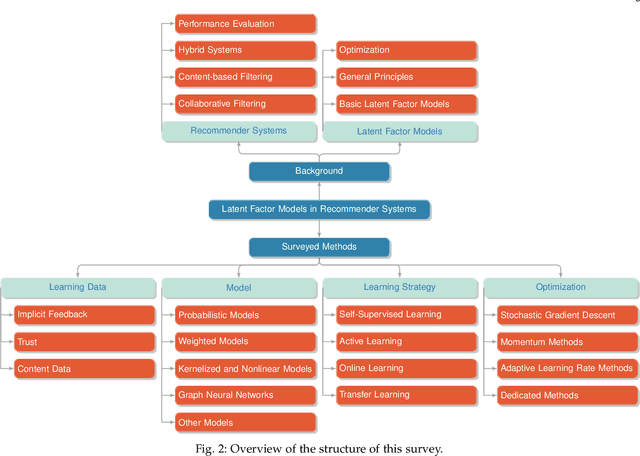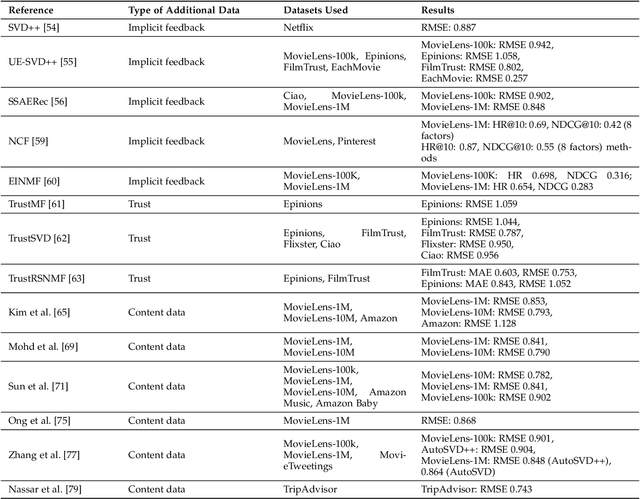A Survey of Latent Factor Models in Recommender Systems
Paper and Code
May 28, 2024



Recommender systems are essential tools in the digital era, providing personalized content to users in areas like e-commerce, entertainment, and social media. Among the many approaches developed to create these systems, latent factor models have proven particularly effective. This survey systematically reviews latent factor models in recommender systems, focusing on their core principles, methodologies, and recent advancements. The literature is examined through a structured framework covering learning data, model architecture, learning strategies, and optimization techniques. The analysis includes a taxonomy of contributions and detailed discussions on the types of learning data used, such as implicit feedback, trust, and content data, various models such as probabilistic, nonlinear, and neural models, and an exploration of diverse learning strategies like online learning, transfer learning, and active learning. Furthermore, the survey addresses the optimization strategies used to train latent factor models, improving their performance and scalability. By identifying trends, gaps, and potential research directions, this survey aims to provide valuable insights for researchers and practitioners looking to advance the field of recommender systems.
 Add to Chrome
Add to Chrome Add to Firefox
Add to Firefox Add to Edge
Add to Edge